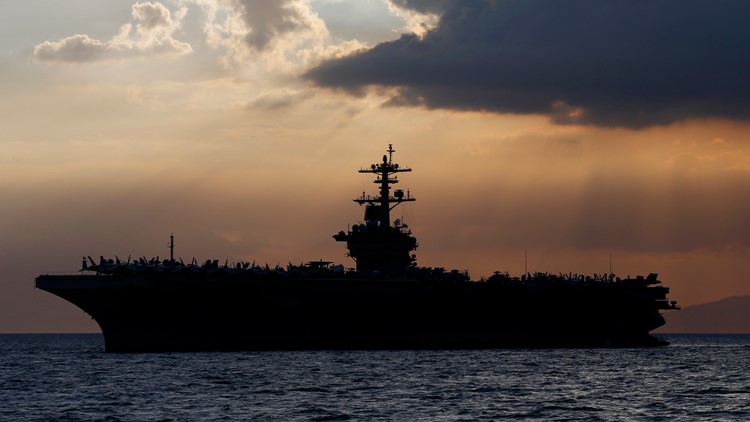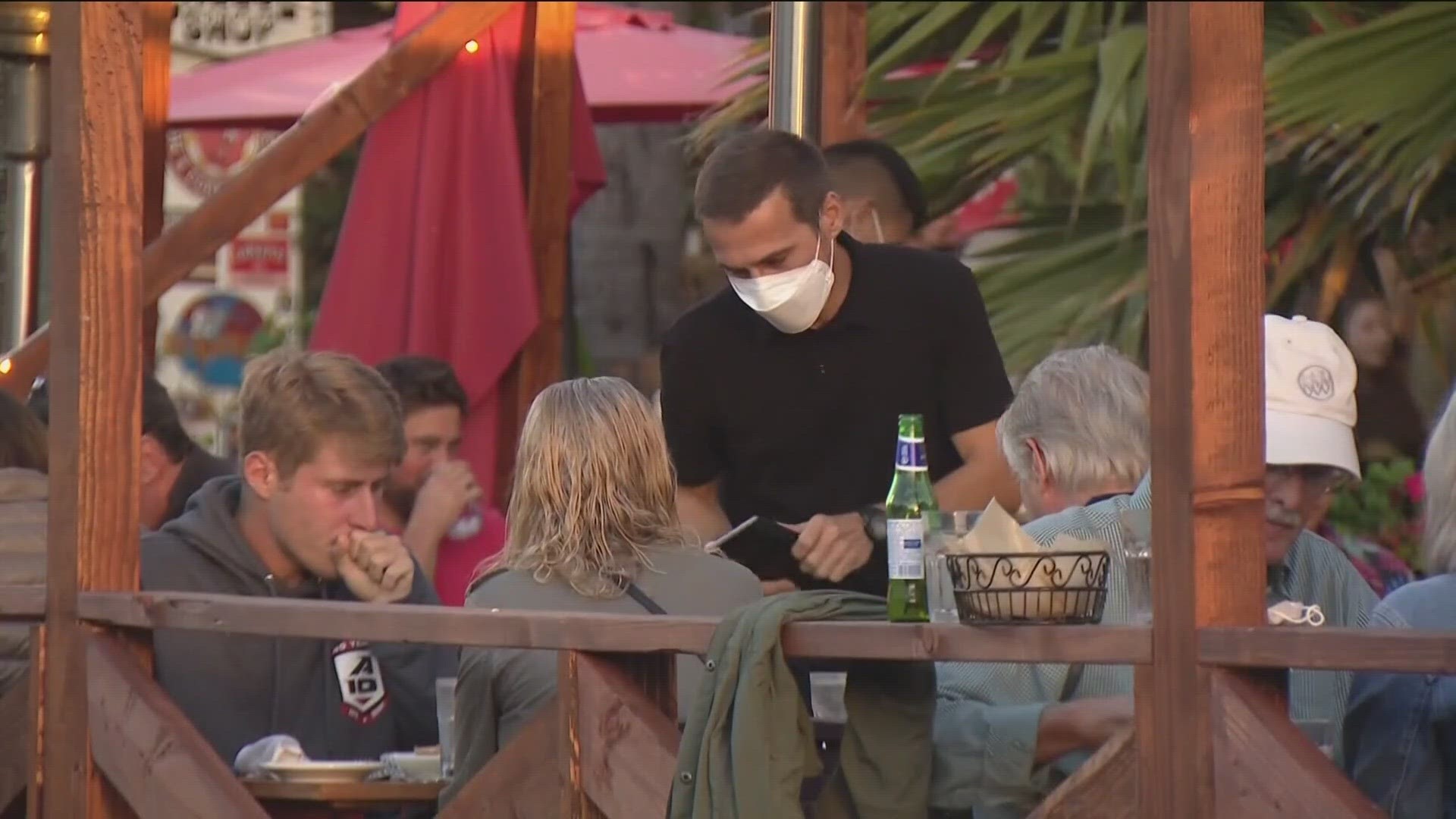WASHINGTON, D.C., USA — The U.S. Navy said Wednesday that it was working to move nearly 3,000 sailors off of a San Diego-based nuclear aircraft carrier whose captain requested more resources and "decisive action" as the ship's crew battles a coronavirus outbreak while docked in Guam.
At a Pentagon news conference, Acting Navy Secretary Thomas Modly said 93 sailors have tested positive for COVID-19 so far among the USS Theodore Roosevelt's crew of more than 4,000. All but seven of those 93 are exhibiting symptoms of the virus, but no one has required hospitalization.
About 1,000 sailors have been moved off the ship so far, with plans to move an additional 2,000 sailors by Friday. About 24% of the crew have been tested for COVID-19 so far, but not all the test results have been received yet.
The announcement came after the captain of the San Diego-based nuclear aircraft carrier asked the Navy for more resources and "decisive action" as the ship's crew battles a coronavirus outbreak among its sailors. Modly said similar concerns were also expressed by the ship's medical team.
Though most of the sailors will be moved off the ship, about 1,000 sailors will need to remain onboard to maintain certain critical functions and security for the ship, Modly said.
In his letter, Capt. Brett Cozier recommended that about 10% of the sailors remain onboard "to run the reactor plant, sanitize the ship, ensure security, and provide for contingency response to emergencies."
Modly said the Navy "cannot and will not remove all of the sailors from the ship and that's not what the commanding officer requested either, nor the medical team. Our plan has always been to remove as much of the crew as we can while maintaining for the ship's safety."
Modly said conversations were ongoing with the government of Guam to free up hotel space to accommodate the sailors moved off ship.
In his letter dated Monday, Crozier said the crew had undertaken some measures to slow the virus' spread, including moving a small percentage of the crew off-ship, increasing cleaning of the ship and attempting social distancing wherever possible.
However, he warned, "The current strategy will only slow the spread. The current plan in execution on TR will not achieve virus eradication on any timeline."
Crozier wrote that the ship has only two courses of action: immediately reduce the number of sailors onboard or "maximize warfighting readiness and capacity as quickly as possible."
Despite Crozier's criticisms, Modly said the Navy was glad the captain was making his concerns known.
"Let me emphasize that this is exactly what we want our commanding officers, our medical teams to do," Modly said. "We need a lot of transparency in this process and we want that information to flow up through the chain of command. That's what they did and we appreciate their ability to let us know at our highest levels where we can apply resources to help the situation in any way."
Modly said Crozier would not face repercussions for penning his concerns, though he expressed uncertainty about how the letter was leaked to the media and said the Navy would prefer those communications remain in-house.
Despite the leak, Modly said Crozier acted appropriately and "the fact that he wrote the letter of his to his chain of command to express his concerns would absolutely not result in any type of retaliation."
----------------
NEWS 8 joined forces with The San Diego Foundation to raise IMMEDIATE, EMERGENCY FUNDS for our most vulnerable neighbors in need. Here is how you can help.
BACKGROUND:
According to the CDC, coronavirus (COVID-19) is a family of viruses that is spreadable from person to person. Coronavirus is believed to have been first detected in a seafood market in Wuhan, China in December 2019. If someone is sick with coronavirus, the symptoms they may show include mild to severe respiratory illness, cough, and difficulty breathing.
Currently, there is no vaccine, however, the CDC suggests the following precautions, along with any other respiratory illness:
Avoid close contact with people who are sick.
Avoid touching your eyes, nose, and mouth.
Stay home when you are sick.
Cover your cough or sneeze with a tissue, then throw the tissue in the trash.
Clean and disinfect frequently touched objects and surfaces using a regular household cleaning spray or wipe.
Wash your hands with soap and water for a minimum of 20 seconds.
The CDC also says facemasks should only be used by people who show symptoms of the virus. If you’re not sick, you do not have to wear a facemask.



